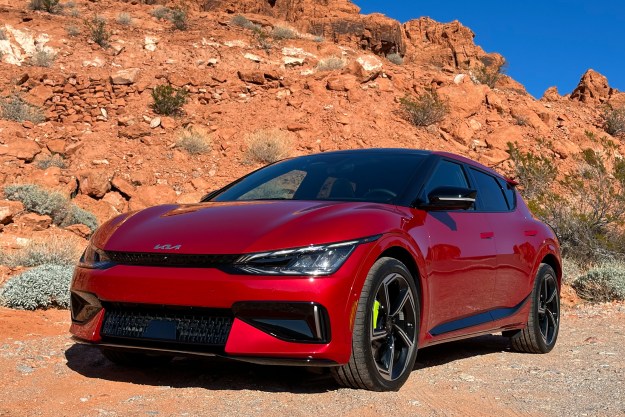
The Koch Brothers are planning a new lobbying group that could spend up to $10 million a year to kill the electric car, according to The Huffington Post. James Mahoney, a confidante of the brothers who also sits on the board of their company, Koch Industries, has reportedly teamed up with lobbyist Charlie Drevna about starting up a new pro-petroleum lobbying group.
The unnamed group is expected to use paid and earned media to promote the oil industry, but will also target electric cars specifically. The launch of this group is partly attributable to “electric cars and the subsidies for them,” an unnamed oil-industry source familiar with the matter said. The involvement of Mahoney indicates the new group is “being driven by the business side of Koch,” rather than the political side that funds the brothers’ other conservative-advocacy campaigns, the source said.
The Koch Brothers will reportedly target electric car subsidies, perhaps because they view expanded sales of electric cars as a threat to their business. Right now, buyers of new electric cars are eligible for a $7,500 federal tax credit, and there are various state and local incentives available as well. These incentives have been an important tool for promoting electric cars, sales of which still represent a small fraction of total new-car sales.
A move to target electric cars seems in line with the Koch Brothers’ playbook, analysts say. The brothers have backed campaigns against renewable-energy technologies like wind and solar, and have publicly questioned the validity of climate-change science. But an attack on electric car subsidies could backfire, some say.
Attacks on clean-energy subsidies could invite a new debate on subsidies already enjoyed by the oil industry, said Don Duncan, a former top lobbyist for ConocoPhillips. The International Monetary Fund estimated last year that global fossil-fuel subsidies cost the equivalent of $10 million a minute, every day.
And while electric cars remain vulnerable, they may not be so easily vanquished. Sales dipped slightly last year thanks to low gas prices, but they’d been increasing steadily for the previous four years. That, along with the need to meet stricter fuel-economy standards, has convinced carmakers to invest more heavily in electric cars.
The arrival of new models with greater range and more sophisticated technology, along with the continued expansion of public charging infrastructure, will only strengthen electric cars’ foothold in the marketplace.
Editors' Recommendations
- Fake engine noises in electric cars need to die
- Genesis Neolun concept is an electric SUV inspired by tradition
- 2024 Dodge Charger Daytona reinvents the muscle car for the EV era
- Apple’s car project has apparently conked out
- Mercedes’ electric eSprinter isn’t just greener, it’s better


